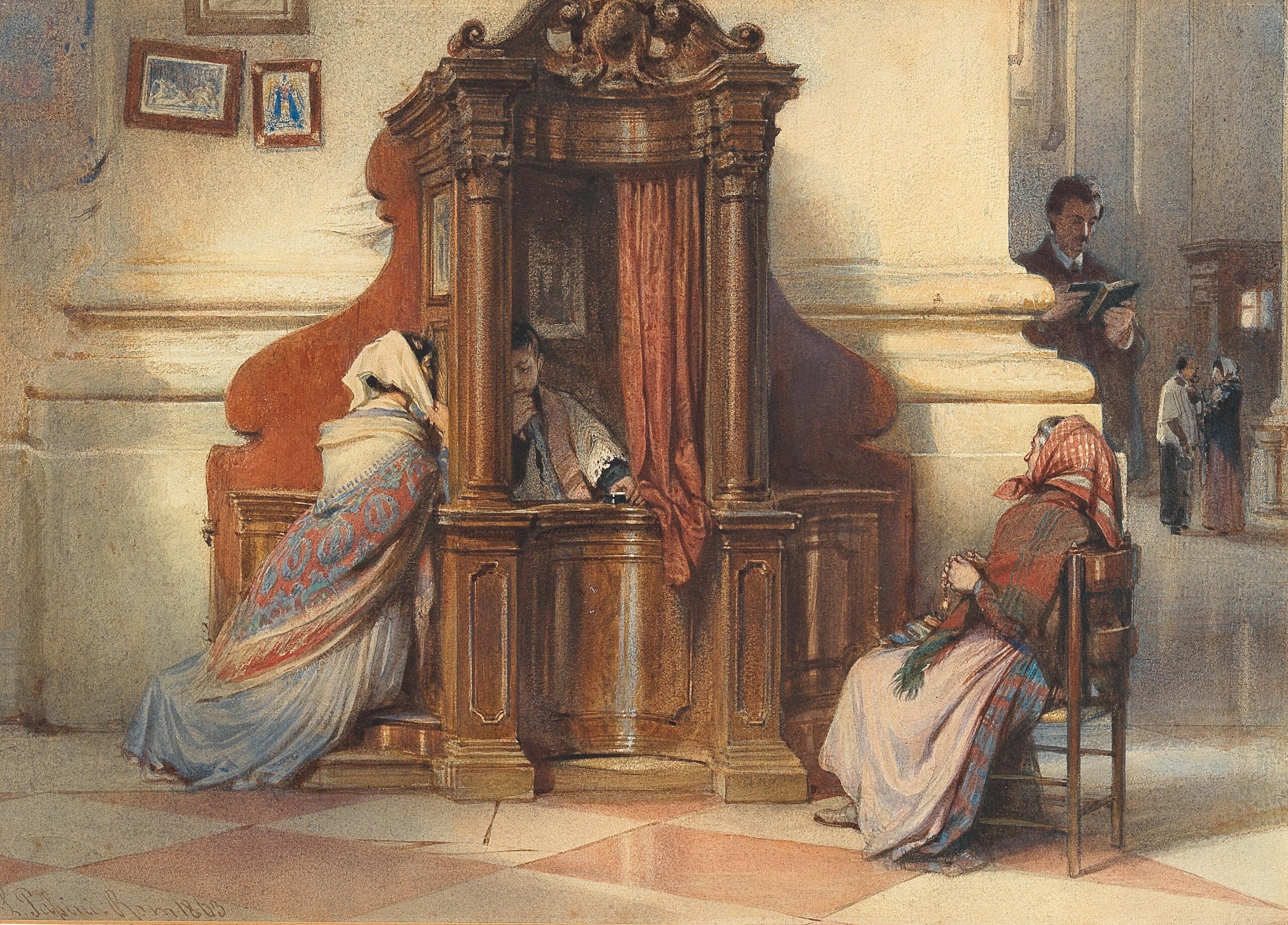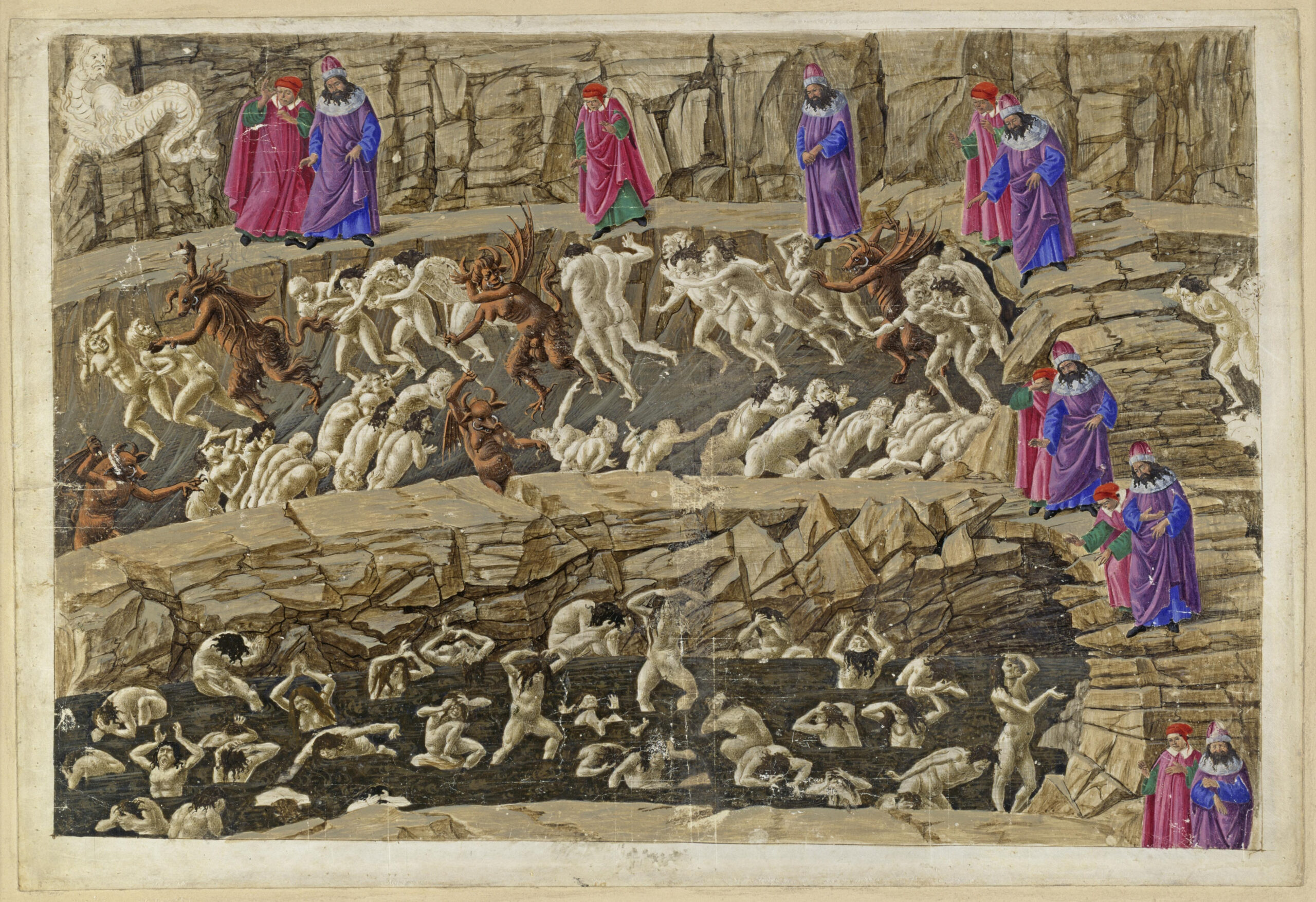For the first time since the hush of Nazi and Soviet guns in May of 1945, the sad malaise of war is upon the European continent, with the sounds of canons firing and the anxiety of bloodshed in the streets.
Ukraine and Russia are both part of Western civilization, of European civilization – what is most properly called Christian culture. Meanwhile peace is a reflection of the immutable natural law, which, is ultimately rooted in the will of God.
“War his hell,” said General Sherman. And by exact theological analogy hell is a depressing place of punishment forever.
Chesterton wrote of war and soldiers: “A real soldier does not fight because he has something that he hates in front of him. He fights because he has something that he loves behind his back.”
As Europe is engulfed yet again in a state of armed conflict, Christians everywhere are revisiting the spiritual implications of war, and are asking the same questions: what should be done?
For Catholic philosophers, peace is not a lack of war, it is a state of justice. Peace is, in the words of St. Augustine, “the tranquility of order.”
Catholic philosopher Dr. John Senior reminds readers that war is a reality and that Catholics have always been ready for warfare:
“Toleration under the rule of conscientious objection is a luxury a healthy nation can afford. But Christianity is not an idea, a theory, or a special privilege. It is a fact. And the fact remains that the history of Christian nations has been continuously military” (The Death of Christian Culture, p. 120).
Indeed, Catholics have always had a history of military orders, to protect and defend. At the same time, the only conspicuous Christian pacifist among the Fathers of the Church was the heretic Tertullian.
For Dr. Senior, war is a reality, something that happens, for all times and beyond history to eternity. This is reflected by forces of good and evil, the wars of the Thrones and Dominations, Principalities and Powers.
St. Paul on Spiritual Warfare
St. Paul himself writes eloquently in Ephesians 6 of Christian warfare that is spiritual, using the armor of God. He urges Christians to be ready and vigilant, to bear spiritual arms in the face of the devil and his attacks.
This was written in the context of an epistle (a letter) he wrote towards the close of his first imprisonment in Rome around the year AD 63.
“For the rest, brethren, be strengthened in the Lord and in the might of his power. Put on the armor of God, that you may be able to stand against the wiles of the devil. For our wrestling is not against flesh and blood, but against the Principalities and the Powers, against the world-rulers of this darkness, against the spiritual forces of wickedness on high. Therefore, take up the armor of God, that you may be able to resist in the evil day, and stand in all things perfect. Stand, therefore, having girded your loins with truth, and having put on the breastplate of justice, and having your feet shod with the readiness of the gospel of peace, in all things taking up the shield of faith, with which you may be able to quench all the fiery darts of the most wicked one. And take unto you the helmet of salvation and the sword of the spirit, that is, the word of God” (Ephesians 6:10-17).
Yet not all war is spiritual.
It takes no great theological subtlety to know that there exists both spiritual and temporal warfare. Countless clear and easily available texts exist in the mainstream of the Christian tradition that address the question of both spiritual warfare as well as temporal war and its spiritual implications.
St. Augustine helped pioneer the just war question that Catholic theologians and pastors discuss not as a theory but actually a doctrine, a tradition of ethics. It assets that war is morally justifiable only through a series of criteria, all of which must be met for a war to be considered just.
It is Catholic teaching that going to war is at times necessary, even though it may not be good. For example, in the case of a sovereign country that has been invaded by an occupying force, war may be the only way to restore justice and freedom.
St. Thomas Aquinas on War
St. Thomas Aquinas touches on the subject of war in his treatise on charity in the Summa Theologica. This is addressed by him in Question 40, De Bello “On War.” For Aquinas war is taken as a species of charity.
For example, the primary purpose of a just war would be for retributive justice (punishment inflicted on nations that have injured innocent victims). War therefore can be an act of justice with soldiers as heroic persons laying down their lives for a greater cause, where Scripture says, “Greater love than this no one has, that one lay down his life for his friends” (John 15:13).
Aquinas cites his predecessor, St. Augustine, who wrote with the entire weight of apostolic and patristic authority behind him. This includes both Scripture and Tradition.
The words of Aquinas follow below:
“As the care of the commonwealth is committed to those who are in authority, it is their business to watch over the commonwealth of the city, kingdom, or province subject to them. And just as it is lawful for them to have recourse to the sword in defending that commonwealth against internal disturbances, when they punish evildoers, according to the words of the Apostle (Romans 13:4): ‘He beareth not the sword in vain for he is God’s minister, an avenger to execute wrath upon his that doeth evil;’ so too, it is their business to have recourse to the sword in defending the commonwealth against external enemies. Hence it is said to those who are in authority (Psalm 81:4): ‘Rescue the poor and deliver the needy out of the hand of the sinner;’ and for this reason St. Augustine says: ‘The natural order conducive to peace among mortals demands that the power to declare and counsel war should be in the hands of those who hold the supreme authority.’ Secondly, a just cause is required, namely that those who are attacked should be attacked because they deserve it on account of some fault. Wherefore Augustine says: ‘A just war is wont to be described as one that avenges wrongs, when a nation or state has to be punished for refusing to make amends for the wrongs inflicted by its subjects, or to restore what it has seized unjustly.’”
Further, referring to the famous nuanced verse of Christ, to “turn the other cheek,” (in Matthew 5:39), Aquinas replies:
“Such precepts, as Augustine observes, should always be born in readiness of mind so that we be ready to obey them, and if necessary, sometimes, for a man to act otherwise for the common good, or for the good of those with whom he is fighting. Hence Augustine says: ‘Those whom we have to punish with a kindly severity, it is necessary to handle in many ways against their will. For when we are stripping a man of the lawlessness of sin, it is good for him to be vanquished, since nothing is more hopeless than the happiness of sinners, whence arises a guilty impunity and an evil will, like an internal enemy.”
Lastly, he writes:
“Those who wage war justly aim at peace and so they are not opposed to peace, except to ‘the evil peace which Our Lord came not to send upon earth’ (Matthew 10:34). Hence Augustine says, ‘We do not seek peace in order to be at war, but we go to war that we may have peace. Be peaceful therefore in warring, so that you may vanquish those whom you war against and bring them to the prosperity of peace.’”
How a Christian is to Respond
It is the continuous experience of history that Christians work for peace. This is common sense, the sensus populorum, on which any political order must be based.
Meanwhile, society appears to always be on the razor’s edge of glory or annihilation. It is not an accident that war is always lurking or that decadence has always led to war.
The question of Christianity in the world comes down to this: the willingness of Christians, in spite of all opposition and setbacks, sin and threats of war, to bear witness patiently and courageously to Christ and to His Gospel message.
Christians are to live in time of war and peace according to Christ’s teachings and live the Faith as best as they can in the rhythms and structures of everyday life – not excluding, but neither being identified with or collapsed into politics or political society.
In a world of fear and distress, the Catholic Church exists to evangelize. Christians are buoyed up by hope, bringing a message of peace to all, a service of evangelization rendered to the whole of humanity. In the words of Paul VI: “If you want peace, work for justice.”
The restoration of Christian culture is the restoration of all things in Christ, and especially the restoration of peace. For there is one person – Christ – “who is our peace” (cf. Eph. 2:24).
Let us pray for peace in Ukraine, the homeland of St. Olga of Kiev, the princess who was the first recorded female ruler of the Principality of Kiev (Kievan Rus) and the first member of the ruling family of Kiev to adopt Christianity. Like many saints, she was a woman of little compromise and known for her iron faith.
Photo caption: a relief of St. Olga of Kiev on the St. Volodymyr’s Cathedral gates in Kiev, Ukraine.








